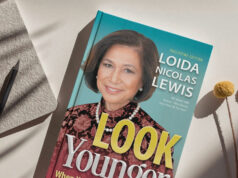As it is in life, so it is in poker: those with little to lose will risk a lot. Butch Dalisay says that the key to getting ahead early is to take risks early.
Words BUTCH DALISAY | Illustration TONE DAÑAS
Tournaments are poker’s great equalizer. Cash games recognize the inescapable fact that not everyone comes to the table with the same stash and pedigree. At my card room of choice—the Metro Card Club at Metrowalk—the cash games start with blinds of 10-20 and minimum buy-ins of Php200, which means grinders in flip-flops with nicknames like “Paos” and “Daga” can parlay Php1,000 into double or triple that, and call it a day’s work. Over in the high-stakes VIP room, their Florsheim-heeled counterparts (these are old guys in shiny shirts, with nicknames like “Colonel” and “Mayor”) are playing exactly the same game, on a scale of millions.
Tournaments give everyone the same starting stack for the same buy-in, and exactly the same theoretical chances of makingit to the winners’ circle. (In poker parlance, that’s finishing “ITM,” or “in the money”—usually about 40 places in a major tournament that attracts 300 players or more). And then it becomes a game of skill, endurance, and plain good luck.

The skill is the most expensive part of that package—I doubt that anyone’s born with it, and there’s really no good way to acquire it but through practice and the payment of full tuition. Endurance means both physical and mental stamina, as tournaments can take anywhere from eight hours for the small daily events to four days for the big 30-table affairs. The world’s biggest and most prestigious poker tournament—the aptly named World Series of Poker (WSOP)—attracted over 6,000 players last year to its Main Event in Las Vegas, each contributing an entry fee of US$10,000 to a prize pool of almost US$63 million, with a top prize of US$10 million.
That’s enough to drive punters dizzy with ambition, but the US$10,000 buy-in is, in itself, already some other tournament’s first prize, and people have been known to hock their houses and sell their cars for a shot at the Big One. (In 2002, Pinoy ace Neil Arce placed 222nd in a field of more than 6,300 WSOP players, good for a paycheck of over US$50,000.) In the Philippines, the tournaments have gotten as big as Php10 million (with a Php10,000 buy-in). If you can’t be the champion, at least you can crash the illustrious “Final Table” of the top 10 finalists, each guaranteed a princely sum by the time they take their seat.
So what’s a guy with two Php500 bills crumpled in his pocket to do? This is where the brilliance of tournament organizers comes in, in stoking the hopes of the masses by allowing them a little nibble at fortune and fame, via something called a “satellite.” A satellite is a pre-tournament tournament, typically with a buy-in of Php500, and depending on the turnout, two or three seats to the million-peso tournament might be given away per satellite.
That’s how I got to the final table in my best big-tournament finish so far, the Metro Summer Event of 2014. Playing a few Php500 satellites until I won a seat to the tourney proper, I plodded my way up the 30-minute “levels” (the “blinds” or minimum bets are raised after every level, ensuring a spiraling of stakes), and finished second overall (more on that finish in a bit).
I’ve found that the key to getting ahead early is to take risks early, while the blinds are low—if you lose, it won’t be too much, but if you win, then you have a promising stack to build on. Of course, nearly every other punter around the table knows that. As it is in life, so it is in poker: those with little to lose will risk a lot, and those with a lot will play with increasing caution.
It helps to know the people you’re playing with, and their habits. When those habits become visible—like a scratch behind the ear or a whiny laugh—it’s called a “tell,” and the word pretty much describes what it does, which is to reveal, unintentionally, whether the player is holding a strong or a weak hand.
Now, having played a couple of years, you might think you’ve become pretty good at reading tells, but be forewarned: the deviousness of poker players knows no bounds. Some will fake a tell, or at least do some play-acting to suggest that they made a bet by mistake, inviting you to make a disastrous raise—that’s called “Hollywooding,” and Best-Actor Oscars come cheap at the poker table. (I should also say “Best Actress,” having been whacked over the head more than once by timorous-looking ladies holding a hidden or “pocket” pair of Aces.)
Skill helps, but nothing beats luck at the turn, as you’ll often hear in card rooms: “I’d rather be lucky than good!” And that’s good, because luck is sometimes all you’ll have to go by. It will happen in any tournament that you’ll go all in—putting all your chips and likely your tournament life on the line—and that’s when you’ll start praying to the poker gods (you won’t find any atheists at the final table) to give you that King, or that heart, or even that deuce.
And that’s how I got to the final table last May, playing basic poker well enough to get me to Day 3—the last day of a grueling slog—and the last two tables. I held a pair of nines. It’s a decent hand, but nothing to write home about. Any face card that shows up on the “flop,” or the first three cards on the table, will almost surely mean someone has made a higher pair than you.
So in this case, I played position—meaning, if I make a strong bet early enough, I just might scare people into thinking that I’m holding Aces or Kings, and get them to fold. Which is what happened—all folded, except one: the chip leader, the guy with the biggest stack, a local poker legend. He called, and turned up a pair of 10s. I began thinking dismal thoughts like, “How does an English major, lousy in Math and old enough to be this guy’s dad, get out of this hole?”
The first three cards—the flop—changed nothing. His two 10s still beat my two nines, and unless I hit another nine in the next two cards—my only chance—I was dead in the water. The fourth card, the “turn,” was the six of clubs. There were still two nines remaining in the deck, but even there was a complication: if it was the nine of clubs, he would make a flush, and still beat me. I needed the nine of diamonds—one lonely card in a deck of 52, and it had to come very soon—indeed, right now! The dealer turned up the last card, the “river”—what else, the nine of diamonds. My adversary staggered back against the wall, and I took the rest of his chips on the very next hand with a pair of Queens.
So I moved on to the final table, and at long last, there were two of us left—me and the nicest guy you could play against. (That’s not good—you want your opponent to be more villainous than Darth Vader, to get your juices worked up.) He had about 3 million in chips, and I had 2 million. Like that car company, in No. 2 spot, you have to try harder, and I did, pushing my luck to the limit.
Our last hand was a textbook classic. The board showed 8-K-J, and I held 9-10, an open-ended straight draw; a seven or a Queen would win it for me. My foe turned his hand over: K-J; he held a two-pair, and was therefore way ahead. The turn card was a nine—I had just improved my chances a bit, as another nine would give me a triple. But the last card was a King, giving him a full house.
That was easily the most expensive hand I ever played, worth a difference of almost Php200,000, but a 60-year-old guy can’t complain too much when he beats a field half his age and brings home a stash that wipes out nearly everything he’s ever lost. (I blew it all on a romp through Europe with the wife, who’ll never mind my poker nights again.) If you wait long enough, it will happen—I just pray it doesn’t take you 60 years.




